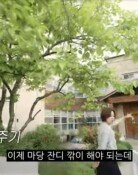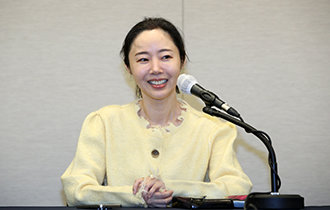Local Governments Lowering Land Taxes
The central government and local governments are in conflict with each other once again surrounding the property tax payment scheduled for July.
Particularly with the opposition partys expected landslide victory in the upcoming local elections, local governments are about to get together after the election to resist the governments unilateral raising of the property tax, which is a local tax.
Sharp conflicts and confrontations exist not just over property tax, but also over other issues that are closely related to the public livelihood, such as the construction of Songpa New Town in Seoul and city reconstruction.
With property tax scheduled to be imposed on June 1, local governments of Seoul and Gyeonggi Province decided to lower the elasticity tax rates of property tax by as much as 50 percent, triggering a domino effect of lowering property tax rates across the country. According to a survey that Dong-A Ilbo conducted on 25 districts in Seoul, 20 districts have applied elasticity tax rates to reduce property tax rates by 10 to 50 percent as of the end of May.
In response, the Ministry of Government Administration and Home Affairs will give disadvantages to local governments that excessively cut tax rates through redemption of grants or cancellation of reconstruction approvals. However, such measure are likely to face strong opposition from local residents.
Reduction of Property Taxes-
The Gangnam-gu Council recently cut elasticity tax rates on housings by 50 percent. There were strong complaints from the residents last year, for some apartments faced 2-fold higher property tax rates. This year, too, the property tax rates have jumped largely, and many houses are even subject to comprehensive property tax that it is inevitable to apply the elasticity tax rates, one Gangnam-gu official said.
Following Seoul, 17 out of 31 cities and counties of Gyeonggi Province have decided to lower the tax rate, and others are considering the same measure as well.
The Government Threatens to Cut Shared Tax Reduction-
Meanwhile, the government is repeatedly warning that those local governments that lower property tax rates will face financial disadvantages including shared tax reduction. Shared tax is the money provided by the central government to support local governments finances. We will consider limiting the scope of local governments elasticity tax rate cuts, one official at the Ministry of Government Administration and Home Affairs said.
However, experts point out that property tax is a matter that must be decided upon by the demands of the local residents.
It is natural for local governments to be sensitive about local residents rising tax burdens. Since property tax is a local tax that is ideal, local governments must be given the authority to decide the elasticity tax rate cut, professor Kim Kyung-hwan of Sogang University emphasized.
In other words, since the government introduced comprehensive property tax to embrace property-related national policies, local governments must be given the discretion.
Conflicts Over Other Issues-
Other issues are mired in controversy as well. The fate of the Songpa New Town construction, which the Ministry of Construction and Transportation announced last year as part of the newly-introduced anti-speculation property policy, is uncertain as the Seoul city government is adamantly opposing it.
The area has been designated as Geoyeo-Macheon New Town, and the basic studies have already been completed, said Seoul mayor Lee Myung-bak, strongly criticizing the central governments city planning once again.
While the central government is aiming to increase housing supply in the Gangnam area, Seoul city is arguing that the measure goes against the special law on the construction of New Towns introduced to boost Gangbuk area development.
Residents Are Expected to Fiercely Resist-
Choi (58) who has been living in an apartment in Gangnam for 26 years argued that it is hard to understand why heavy tax is being levied on real users of houses who have no speculation intent.
I do not see why the central government is interfering with local affairs despite its giving autonomy to local governments. If the government keeps exerting pressure, I am willing to wage a collective protest with other residents, added Choi.







